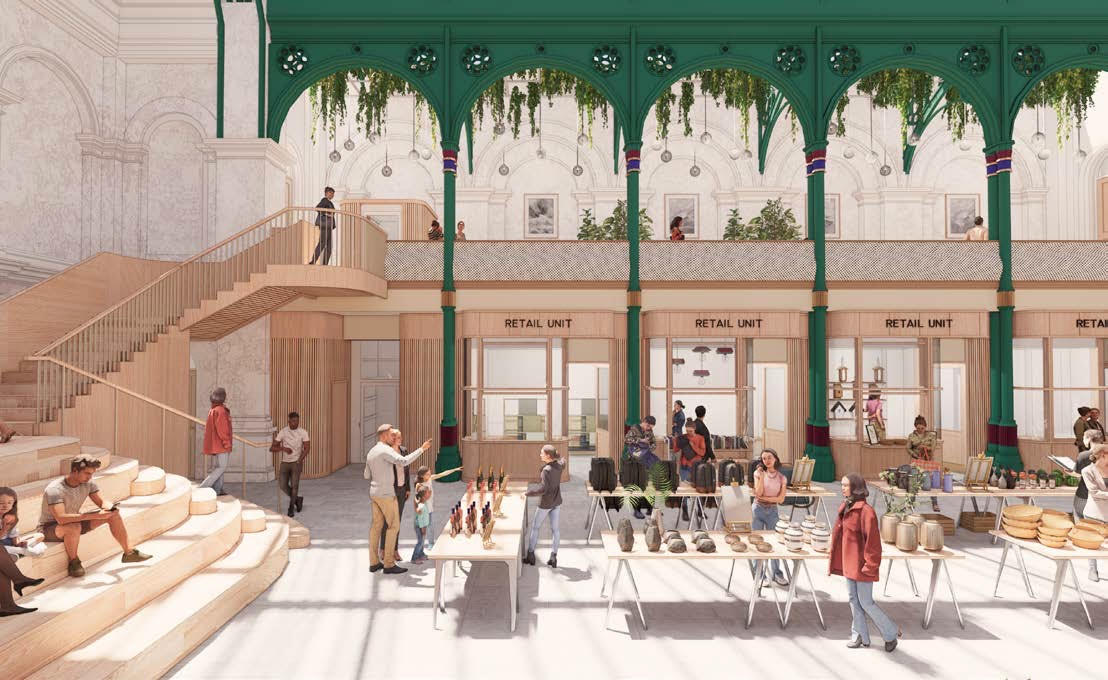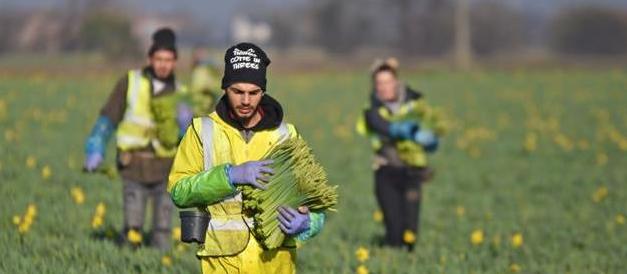East Riding dental practices pair with Dentex in latest deal
Forgemasters takes on 15 apprentices
2023 Business Predictions: Luke Gidney, Managing Director at HOP
Bradford cleaning and hygiene specialist acquires Irish firm
Yorkshire firms help with environmental project on Lincolnshire river
“It will be fascinating to watch the site, river and wetlands develop and evolve over time. This is especially true now that the river has the freedom to choose its own shape and form without human interference.”
Storage and distribution business names new transport operations director
Lindum Group wins £8.5m contract to build project in Mablethorpe
East Lindsey District Council has appointed Lindum Group to build its £8.5m Campus for Future Living in Mablethorpe.
HSH Cold Stores to acquire fellow Grimsby firm
Government’s seasonal worker visa scheme welcomed by the NFU, but may be too late for some
Work underway in Doncaster’s Corn Exchange as new images released



Transformation of historic Bradford offices into apartments completes
The transformation of a former bank in Bradford into apartments and a commercial space has been completed with a final contract value of £620,000.
Priestley Construction, the Leeds-based contractor which specialises in the refurbishment of historic buildings, has delivered the project with the developer IP Properties. The 6,322 square foot building was acquired in March 2017 and has now been fully completed.
12 Piccadilly is now comprised of 14 apartments which occupy the second and third floors of the three-story former bank. The ground floor will offer self-contained commercial space for businesses to rent.
Although the building has been modernised inside, as this site was a Grade-II listed building, Priestley Construction combined original features with new, high specification details.
Bob Priestley, head of construction, said: “It was great to work on another project in Bradford. Although we had some access and parking restrictions initially, we overcame these by having a strong team with excellent logistical and planning skills.
“We have created further apartments in the city and although this contract is not as large as Conditioning House, it brings another historic building of value to life and creates more city living in Bradford.”
Located in Bradford city centre, the apartments are being retained by the developer for the rental market, aimed at young professionals in particular.
Scarborough packaging and stationery specialist acquires complementary Bradford business
Leeds recruitment business becomes employee owned
York Handmade plays pivotal role in new Easingwold housing development
2023 Business Predictions: Edward Ziff, chairman and Chief Executive of Town Centre Securities PLC
Yorkshire Building Society ranks in UK’s top ten employers dedicated to diversity
Jobs saved as Grantham hotel sold out of administration
Two join Nuclear AMRC exec team to get more UK firms into the sector
Small firms resist move to cashless society, research discovers
Two in five small firms don’t want to see a move towards a cashless society, according to new research from iwoca, one of Europe’s largest small business lenders,.
The analysis finds that around half (46%) of small firms use cash each month, while a third use it every week.
While three in ten small businesses have reduced their use of cash since the start of the pandemic, the majority are using it to the same extent, with some even seeing greater demand from customers. Over half of SMEs say their use of notes and coins has remained stable despite the increase of contactless and online payments being rolled out during the pandemic, with more than one in ten companies seeing an increase.
SMEs still use cash for a variety of reasons, with flexibility for customers coming out on top. Nearly six in ten businesses back cash to promote consumer choice (57%), while a quarter are concerned that card payment costs remain too high (24%).While the use of cash has declined among many small businesses, iwoca says SMEs are evenly split on whether cash should be phased out in future. Two-fifths say that they want to keep using coins and notes with their customers, while the same proportion wants to stop using them entirely.
Colin Goldstein, Commercial Director at iwoca, said: “For hundreds of thousands of small businesses, access to physical money is still essential for the day-to-day running of their company. Yes – the pandemic has moved more businesses towards contactless payments, but the real story here is the strong resilience of cash. From coffee shops to hair salons, restaurants to construction sites, it seems that SMEs want to continue using coins and notes long into the future.”






















